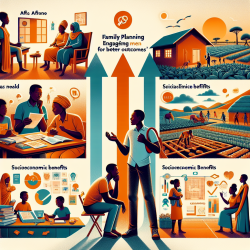Empowering Practitioners: Harnessing Data to Enhance Child Outcomes
In the ever-evolving field of speech-language pathology, data-driven decisions are crucial for achieving the best outcomes for children. Recent research on SARS-CoV-2 transmission in Alberta, British Columbia, and Ontario, Canada, provides valuable insights that can be applied to enhance the practice of online therapy services like those offered by TinyEYE.
Understanding the Research
The study titled "SARS-CoV-2 Transmission in Alberta, British Columbia, and Ontario, Canada, January 2020–January 2022" delves into the transmission potential and case burden of different COVID-19 variants. It also evaluates the effectiveness of public health interventions in reducing transmission rates.
Key Findings
- The time-varying reproduction number (Rt) increased with the emergence of the Delta variant, particularly in British Columbia, which saw a 43.85% increase.
- The incidence rate ratio (IRR) was highest for the Omicron variant, with Alberta experiencing the highest burden.
- Public health interventions, such as school closures and mask mandates, were associated with lower Rt, while relaxation of restrictions led to increases.
Implications for Practitioners
For practitioners in speech-language pathology, these findings highlight the importance of staying informed about public health trends and adapting interventions accordingly. Here are some ways to implement these insights:
- Stay Updated: Regularly review current research and public health guidelines to ensure your practice aligns with the latest evidence-based strategies.
- Adapt Interventions: Be flexible in your approach to therapy, considering remote options and hybrid models to maintain continuity of care during public health crises.
- Collaborate: Work closely with schools and families to implement effective interventions that consider the broader public health context.
Encouraging Further Research
While this study provides a comprehensive analysis of COVID-19 transmission in Canada, it also underscores the need for ongoing research. Practitioners are encouraged to contribute to the body of knowledge by participating in studies and sharing insights from their practice.
By leveraging data and research, practitioners can enhance their skills and improve outcomes for children. The journey to better outcomes is continuous, and staying informed is key to success.
To read the original research paper, please follow this link: SARS-CoV-2 Transmission in Alberta, British Columbia, and Ontario, Canada, January 2020–January 2022.










